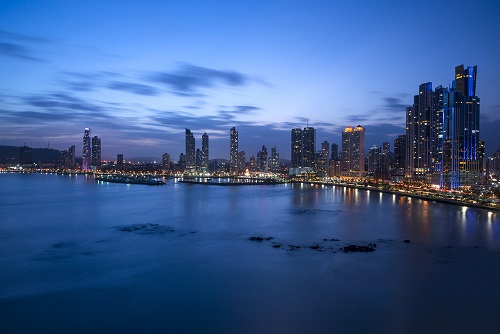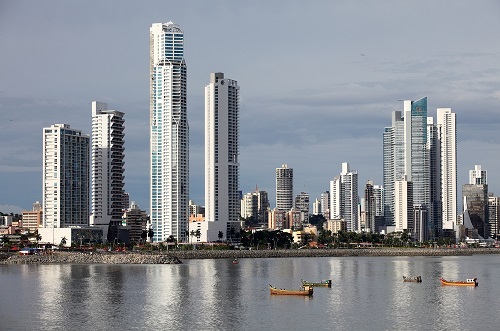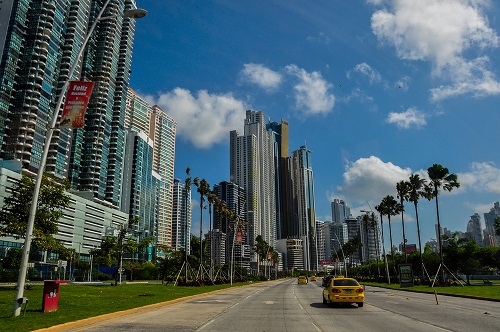Panama is an attractive country for expats. It is currently Central America’s biggest economy and is continuing to grow after new presidential elections and a boost to the country’s infrastructure. It is appealing to both employees and retirees, particularly from the USA. If you are intending to spend time there, it is important to understand the regulations. We will look at some of your options below.
Will I need a visa?
Panama has a range of visas, including:
• Panama’s pensioner (retiree) visa
• Friendly nations visa
• Professional employment visa
• Panama’s reforestation investor visa
• Panama’s self economic solvency visa
• Panama’s business investor visa
• Married to a Panamanian citizen visa
Panama has visa agreements with a variety of nations. If you are a British citizen, you will not need a visa to visit Panama, unless you are arriving by sea (see below), for a stay of less than 180 days.
If you are a citizen of another visa-waiver country, such as the United States, Canada, and members of the European Union, as well as some other countries, you do not need a formal visa to gain entry to Panama if you intend to stay for less than 180 days. You will, however, need a passport that has been valid for at least three months, and this may need to be six months at the time of your arrival.
The country offers benefits to expat retirees, including the pensionado visa, which is available to anyone over 18 who has a lifetime pension, annuities, or an income of $1K per month (you can combine this with your spouse’s income). If you buy property worth over $100K, the minimum monthly income requirement drops to $750. However, this visa does not entitle you to work.
How do I apply for an entry visa?
If you are a British citizen, you must have a return or onward ticket and the equivalent of US$500 or a credit card.
If you enter Panama by land from Costa Rica, and are not a legal resident of Costa Rica, the immigration authorities may ask you to show proof of onward or return travel to your country of legal residence. Note that the UK government warns that you may be detained by immigration officials if you attempt to renew your tourist visa by visiting a neighbouring country, including Costa Rica.

An initial stay of 180 days is granted when you enter Panama. Extensions are not normally allowed, unless you apply to change your immigration status within the 180 days (for business purposes, marriage, etc.).
Make sure immigration officials properly stamp your passport with the date you enter the country.
If you wish to stay for longer, and are from one of the countries listed here, you can apply for a friendly nations visa. This follows Executive Decree 343, an immigration directive dating from 2012, which means that specific countries, with professional or economic ties with Panama, can apply for residence.
You will need:
• A summary of a police background check notarised by the Panamanian consulate in your area
• Utility bills demonstrating that you have established a presence in Panama
• Bank statements proving you can support yourself financially
• Valid photo identification
You may be asked for additional documents, such as an employment contract.
How much does it cost?
A tourist card costs around US$5.
If you are a British national and arrive in Panama by sea, except via a cruise line, you will need a visa. There is a fee of $100, plus a $5 registration fee, per person for passengers and crew members of vessels. Other fees may be charged, for example, for cruising permits.
How long does it take?
The Panamanian authorities warn that visa processing from abroad can take up to 60 days.
What will I need to apply for a work visa?
Panama has recently overhauled its legal requirements for overseas employees, and overall it has extended the length of most types of work permit.
The government has created a new category of (non-resident) stay visa for US nationals. This allows you to enrol for temporary and/or technical work, investment, and labour transfer for up to a year, and this can be extended.
This new visa requires documentary evidence of the intended work. However, you will not need to pay the usual US$100 migration service fee.
There is also an option for temporary residence permits for aviation personnel.
In order to encourage the employment of local personnel, Panama operates a quota system and also has a policy of adhering to the Marrakesh Agreement (for companies with fewer than ten employees). In order to apply for a work permit under the Marrakesh Agreement, a company must employ a minimum of three Panamanian employees and no other foreign national employees.

For a standard work permit for professionals – for example, for people working in international trade or administration – you can apply for a permit for two years, renewable for three years. You will no longer need to renew your work permit every year during the 10-year period that is required before you are eligible to apply for a permanent work permit. This is designed to reduce immigration costs for employers and administrative burdens for foreign personnel.
However, you will need to submit a substantial amount of documentation in order first to be registered as a professional foreigner:
• Your passport, including the cover, authenticated by a notary public of Panama
• A police record certificate – this must be apostilled or authenticated by a consul of Panama
• Your original university degree certificate and two apostilled copies of your university degree – one is for your residency and the other is for your work permit – which must be approved at the University of Panama / University Technology
• A medical certificate
• Three passport photos
• Proof of residence (receipt of public services or lease)
• Power of Attorney
You will also need to pay a fee.
Once you have been registered, you will need to apply for the actual work visa itself, by submitting the following to the Ministry of Labor:
• A document accrediting your immigration status, issued by the SNM
• Four passport-size photos
• An apostilled copy of your university degree
• A copy of your residence card, authenticated by a Panamanian notary
• The Power of Attorney and your request
Bringing a pet into Panama
Your pet will need to have a rabies vaccine, administered at least 30 days before it arrives in Panama, as well as a Health Certificate. You will also need to have your vet fill out Form 7001, also known as the Certification of Good Health of Exportation of Small Animals.

